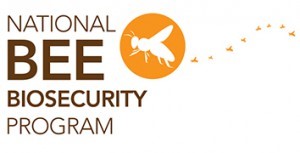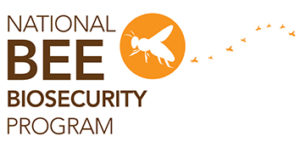Leaving Beekeeping – What do I need to consider?
27 March 2025Karyn Di Florio, Bee Biosecurity Officer for Agriculture Victoria Written with Victorian Beekeepers in mind The introduction to Australia of the exotic pest Varroa mite (Varroa destructor) will see the […]

Karyn Di Florio, Bee Biosecurity Officer for Agriculture Victoria
Written with Victorian Beekeepers in mind
The introduction to Australia of the exotic pest Varroa mite (Varroa destructor) will see the future of beekeeping change for all beekeepers. Whether you are a beekeeper of one hive or hundreds of hives the next few years will see the industry face new challenges as Varroa establishes across the state, and an increased workload for all.
The Transition to Management (T2M) project is working to increase the resilience and capacity of the industry to manage their hives with Varroa mites. For some beekeepers, this additional workload may mean beekeeping is no longer feasible for them and therefore decide to leave the industry.
The extra workload on managing hives with Varroa may not be the only reason beekeepers decide to exit the industry. Some alternative reasons for why you can no longer keep bees might be:
- Loss of interest or moving and cannot move your hives with you
- Health or aging and unable to physically work your bees
- Wanting to downsize
- Wanting to leave the industry or retire
If you do decide beekeeping is no longer for you, you must ensure you find a new home for your bees. This might mean selling or giving the bees away before they deteriorate and create a nuisance.
Gifting or Selling Hives
In preparation for gifting or selling your hives there are a few things to consider.
1. Hive Health
Ensure your colony is healthy. Having a healthy hive is essential to beekeeping and will be what the new beekeeper expects. Be prepared that the new owner may want to conduct an inspection of your hive/s prior to purchase to visually confirm any information you are providing them about the state of health of the hive.
2. Hive Records
Where did you obtain your hives and how long have you had them? Ensure you can provide a history of the hive by completing a Vendors Declaration from AHBIC (https://honeybee.org.au/).
Are all your hive inspections and mite checks up to date as per the Biosecurity Code of Practice Inspecting Hives?
If you have over 50 hives, have you conducted an inspection and Honey Culture Test for American Foulbrood (AFB) in this apiary or any of your other apiaries?
Do you have records of your inspections and mite checks, including dates and results of such inspections? Victorian beekeepers may be able to provide such records from their BeeMAX online diary at https://bees.agriculture.vic.gov.au/.
3. Hive Components and Equipment
What to do with unwanted hive components or equipment? It may be that if you are selling hives the new owner will take/purchase any hive components and equipment also. You may have to sell or dispose of these separately though. Any components or equipment should be in good working order and free of degradation and pests or disease.
Where did you obtain your hives and how long have you had them? Ensure you can provide a history of the hive by completing a Vendors Declaration from AHBIC (https://honeybee.org.au/).
Are all your hive inspections and mite checks up to date as per the Biosecurity Code of Practice Inspecting Hives?
If you have over 50 hives, have you conducted an inspection and Honey Culture Test for American Foulbrood (AFB) in this apiary or any of your other apiaries?
Do you have records of your inspections and mite checks, including dates and results of such inspections? Victorian beekeepers may be able to provide such records from their BeeMAX online diary at https://bees.agriculture.vic.gov.au/.
Hive Disposal and Cancelling Registration
In Victoria, beekeepers must notify the Bees Registrar in writing within 7 days when a hive is:
- Disposed of
- Sold
- Given away.
This is a requirement under the Livestock Disease Control Act 1994 and Livestock Disease Control Regulations 2017. Victorian beekeepers can do this through their BeeMAX online diary.
Victorian Beekeepers can find information and appropriate forms to use on the Selling or Giving away a beehive at agriculture.vic.gov.au.
Neglected Hives
Neglected hives can become diseased and a source of infection for other colonies nearby. Neglected hives can also have a negative impact on the industry if they swarm or become a public nuisance. Follow the Honey Bee Code of Practice protecting hives and do not allow your hives to become exposed or neglected.
If you sight any abandoned or neglected hives, please report these to your local Apiary Officer in your state.

In Victoria for further information or to report neglected hives contact Agriculture Victoria on 136 186 or email honeybee.biosecurity@agriculture.vic.gov.au.

The National Bee Biosecurity Program is funded by the honey bee industry through a component of the agricultural honey levy, with state governments contributing in-kind resources. Plant Health Australia manages the program on behalf of the Australian Honey Bee Industry Council .
